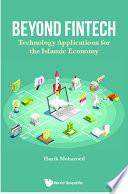
The Islamic Economy - The Fastest Growing Large Economy. Eurasian Focus
Islamic economy phenomenon is known as a separate object of research since 1940s. However, it kindled the curiosity of multinationals and policymakers much later in the 20th century - when multinationals realized the size and the growth rate of Islamic economy's main segment Halal industry and when Islamic financial mechanisms proved their resilience during global financial crises. Today, the phenomenon of Islamic economy has stepped beyond the Arab world and penetrated in everyday life of ordinary Muslims all over the world as they opt for goods and services, which correspond their religious views. This process is accelerated through digital means, social media, and tech apps. As the number of Muslims increase exponentially, the demand for Halal goods and services also will grow.Eurasia has all prerequisites to be one of the meaningful centers for development of Islamic economy and to occupy attractive niches within it. We already have several countries in the region whose Islamic economy ecosystem reached substantial levels given Halal-friendly legislations, certifications, awareness, and a formed clients segments. In this report, we give a bird view perspective on Islamic economy in the world and in Eurasia through the prism of 3 Fs: Halal food, Modest Fashion, and Islamic Finance. We discuss the current state and opportunities for local business associated with exports to conquer the markets of Muslim consumers.We believe the report will be useful for stakeholders in the region, as well as institutions and enterprises interested in participating in Islamic economy development in Eurasia. It should help all interested parties improve their understanding of the Islamic economy and to discover the underlying opportunities in Eurasia.
- ISBN 10 : OCLC:1304328004
- Judul : The Islamic Economy - The Fastest Growing Large Economy. Eurasian Focus
- Pengarang : Gaukhar Nurgalieva,
- Bahasa : en
- Tahun : 2018
- Halaman : 124
- Google Book : http://books.google.co.id/books?id=FRn-zgEACAAJ&dq=intitle:Economy+of+Muslim+Countries&hl=&source=gbs_api
-
Ketersediaan :
Islamic economy phenomenon is known as a separate object of research since 1940s.



